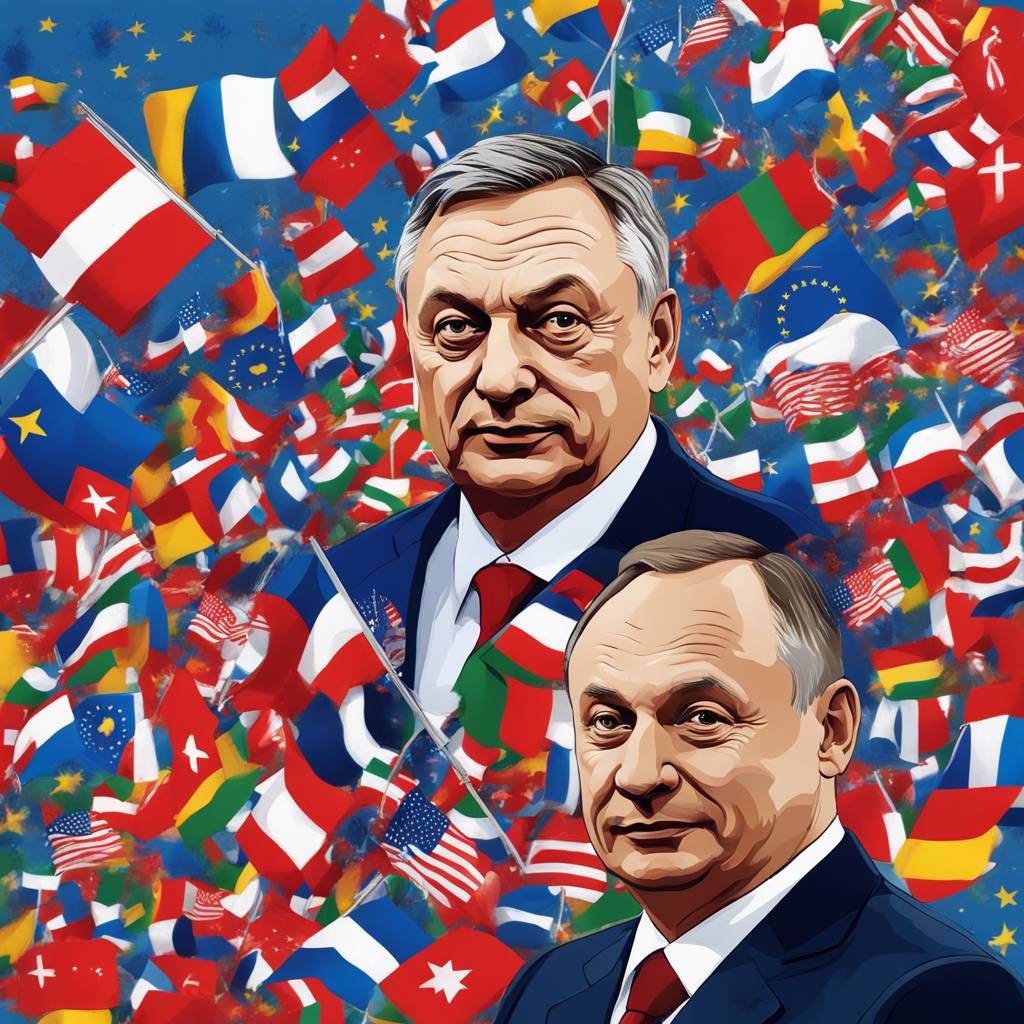Hungarian Prime Minister Viktor Orbán congratulated Russian President Vladimir Putin on his re-election, despite the European Union’s condemnation of the Russian presidential poll for taking place in a restricted political space and violating civil and political rights. Orbán’s congratulatory message emphasized Hungary’s commitment to close relations with Russia, even amidst Western sanctions aimed at restricting the Kremlin’s war capabilities in Ukraine. This move comes at a crucial time as EU leaders discuss ramping up military support to Ukraine and enhancing defence capabilities to deter a potential Russian attack.
Responding to Orbán’s support for Putin, European Parliament President Roberta Metsola expressed disapproval, citing Russia’s illegal invasion of Ukraine and the lack of free and fair elections in the country. Estonian Prime Minister Kaja Kallas also criticized the elections in Russia, referring to them as a ‘special nomination operation’ rather than genuine elections. Leaders at the EU meeting discussed a proposal to use the frozen assets of the Russian Central Bank to provide weapons and artillery shells to Ukraine for reconstruction. However, this plan requires unanimous approval, giving Orbán the potential to veto it, a tactic he has used in the past to extract concessions from the EU.
Orbán’s decision to congratulate Putin and maintain close ties with Russia despite Western sanctions and condemnation highlights his willingness to diverge from EU’s foreign policy stance. This move aligns with Orbán’s strategy of using veto power to influence decisions at the EU level and extract concessions for Hungary. Orbán’s actions have drawn criticism from EU diplomats who compare his behavior to a series of escalating demands similar to Russian dolls, where one demand is fulfilled, only for another to emerge.
Orbán’s congratulatory message to Putin coincided with an EU meeting focused on providing military support to Ukraine and enhancing defence capabilities in response to the heightened tensions with Russia. The EU’s condemnation of the Russian elections for violating human rights and democratic principles contrasts with Orbán’s gesture of support towards Putin, further underlining the divisions within the EU on foreign policy matters. Orbán’s actions have previously caused controversy, including delays in approving funds for Ukraine and ratifying Sweden’s NATO membership bid, showcasing his willingness to assert Hungary’s interests even at the expense of EU unity.
The EU has criticized Russian elections for restricting political space and violating civil rights, with the bloc denouncing the Kremlin’s actions in organizing elections in occupied Ukrainian territories as a violation of international law. Orbán’s support for Putin and the reinforcement of ties between Hungary and Russia indicate a divergence from the EU’s unified stance on dealing with Russia. Orbán’s use of veto power to influence EU decisions has raised concerns among diplomats, who view his tactics as a challenge to EU unity and cooperation on foreign policy matters. Orbán’s actions signify a broader trend of asserting Hungarian interests and maintaining close relations with Russia, despite criticisms from EU leaders for his alignment with Putin’s regime.



